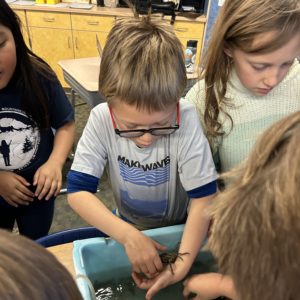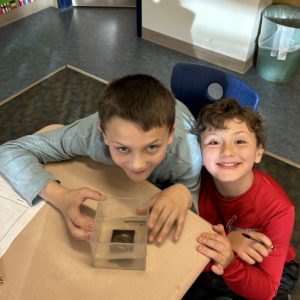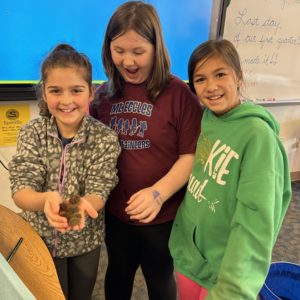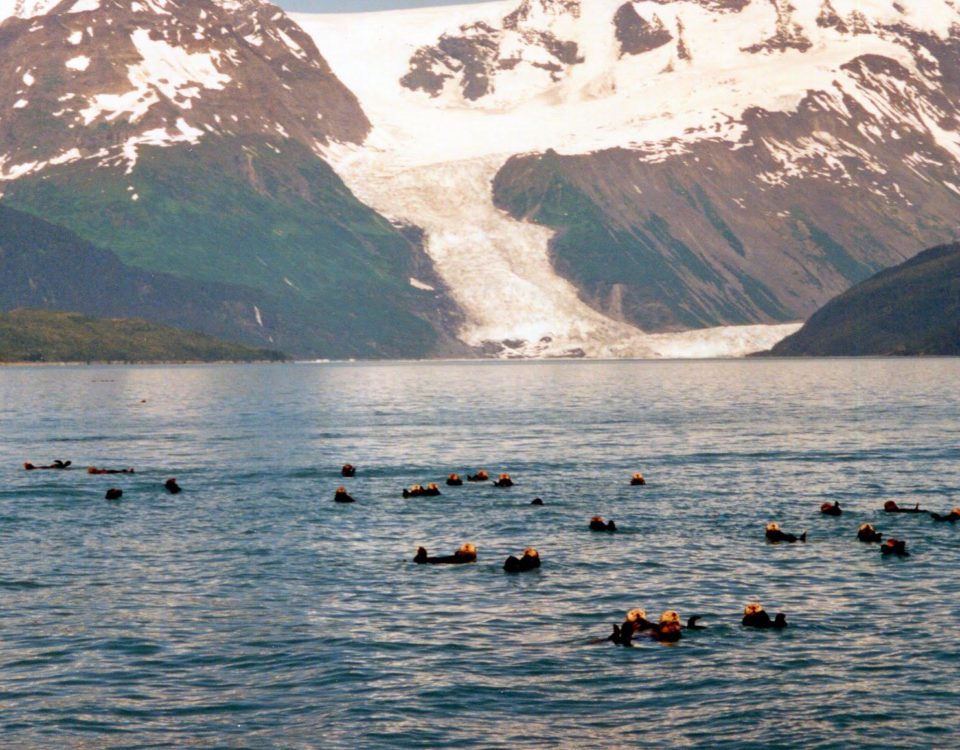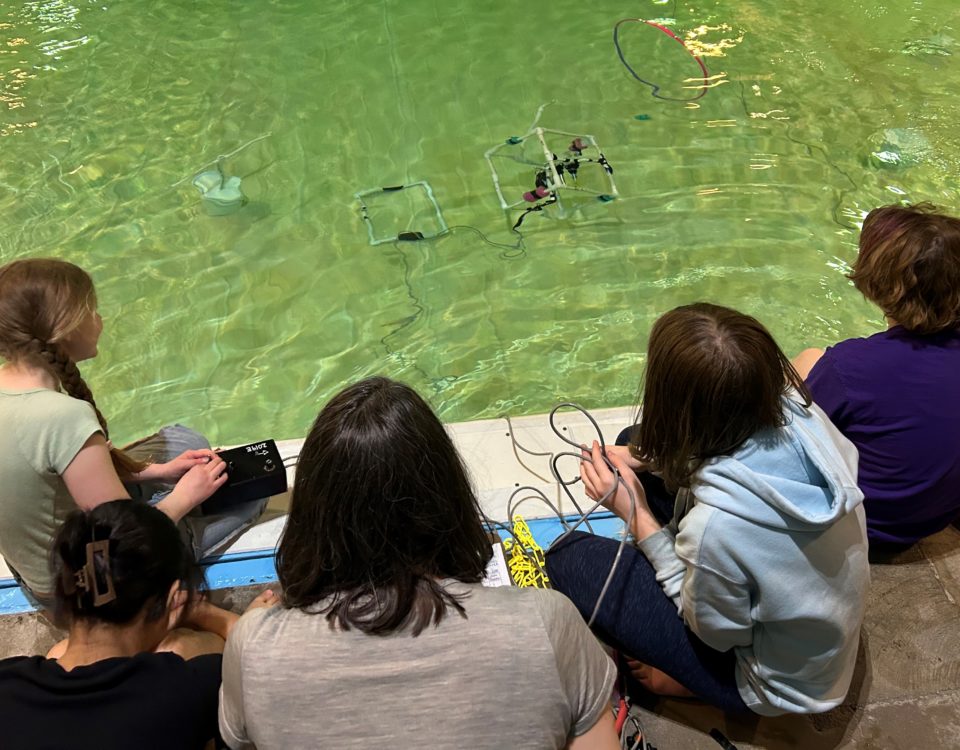Education Month in Review: October 2023
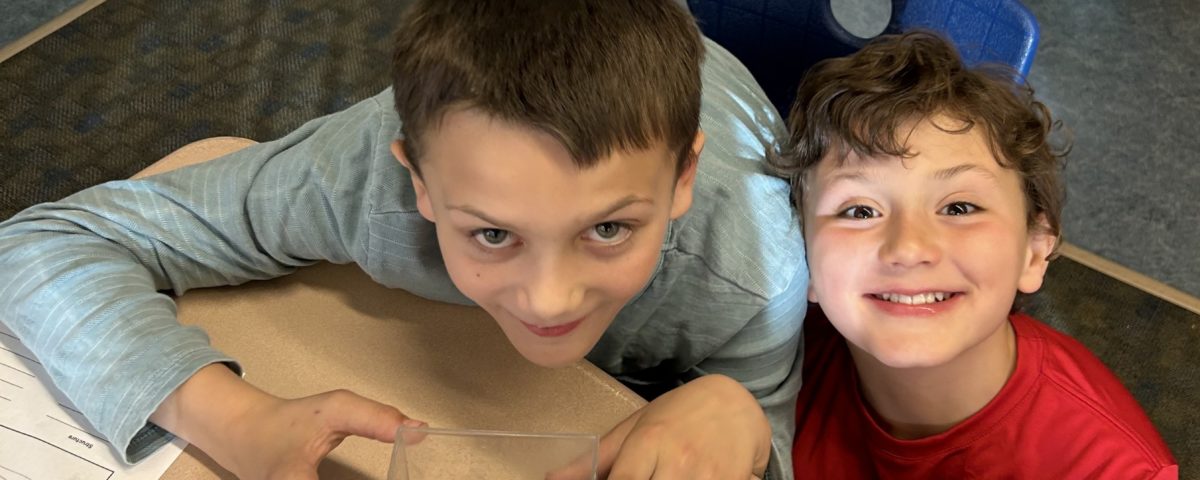
By Cristina Reo
This month’s theme was Creatures of the Deep, celebrating the weird and the wonderful!
We hosted a “creatures of the deep” Fun Friday that taught kids about deep sea creatures and the adaptations that allow them to survive in such a difficult and vast environment. We also hosted “spooky creatures” Fun Friday where families explored ominous creatures and their amazing adaptations. Octopus yoga was a crowd favorite; participants were guided on a deep sea experience as they explored the wonderful world of octopuses while enjoying the serenity of a yoga practice. Finally, we capped off the month with our annual Halloween Mad Scientist Laboratory. Families joined for fun (and messy) science experiments that left them screaming with curiosity!
For our youngest explorers, we hosted a morning and afternoon Sea Squirts session about balance, where kids stacked blocks, practiced standing on one foot, made balance sculptures, and played balance themed board games. October Little Dippers has been full of exploration and movement in rain, sun, and wind. The children have investigated the concept of floating and sinking. They also investigated mosses and lichens, local birds, mammals, and invertebrates.
During this month’s Trivia Night, “Are You Smarter than a Fifth Grader?” contestants were asked questions about topics that we teach in our Discovery Room program at Mt. Eccles Elementary School. This trivia night left people saying, “I need to go back to school” and “I wish I went to school in Cordova!” We hosted three Tuesday Night Talks. The first was presented by Collin Bronson of the City of Cordova discussing the South Harbor Reconstruction Project. The next was presented by Tory Rhodes of ADF&G, As the Seasons Tern: 10 years of Aleutian tern surveys. Sierra Greene of UAF and Aaron Jones of ASG capped off the month with a presentation about Environmental Drivers of Growth on Kelp and Oyster Farms.
We visited every grade at the elementary school this month as part of our Discovery Room program.
- Kindergarteners explored the skills scientists need by making observations with their five senses.
- First graders created a forest symphony while learning how vibration creates sound. They used drum sticks to compare hollow logs, rocks, branches, and the ground.
- Second graders went on a field trip to the harbor where they learned about biodiversity and species richness. While on their field trip, they “graphed” biodiversity using Lego. Additionally, second graders explored parts of a plant. They planted lettuce seeds to grow in their hydroponic system.
- Third graders also went on a field trip to the harbor where they learned about biodiversity and species richness. While on their field trip, they “graphed” biodiversity using Lego. The third grade classes also investigated bird courtship and nest building by creating bird dances and playing games.
- We brought kelp into the fourth grade classroom to examine as the students continue to learn about the food chain. Through their observations, they discovered how kelp benefits the ecosystem. Later in the month, they repeated the experiment with marine invertebrates in classroom touch tanks.
- Fifth graders dove headfirst into the world of systems thinking by diagramming a bicycle and creating a systems web of Cordova.
- Sixth graders got to explore another property of water during our density lab. They discovered that cold water is more dense than warm water. We ended the month with a lesson on the deep sea. Students learned about adaptations of deep sea creatures, including bioluminescence. After our lesson, Dr. Rob Campbell took the 6th grade class out on a cruise in search of bioluminescent plankton!


